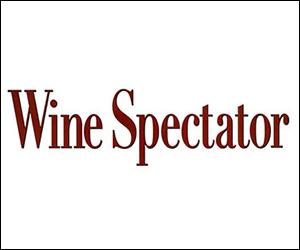Four weeks after the United States slapped a punishing 25 percent tariff on many European wines in retaliation for subsidies to airplane manufacturer Airbus, wine professionals on both sides of the Atlantic are grappling with evaporating profits as they navigate an uncertain business environment.
“We find it brutal and unjust,” said Ronan Laborde, owner of Château Clinet and president of the Union des Grand Crus, a Bordeaux trade group. “To impose a tax with 15 days notice, for wine which uses sea transport, there was a lot of stress and confusion. And it doesn’t touch all wines. It’s incomprehensible.”
On Oct. 2, the World Trade Organization (WTO) gave the U.S. the green light to impose duties on $7.5 billion worth of European goods after the E.U. was found guilty of unfair subsidies to Airbus. The following day, President Donald Trump’s administration announced tariffs on a wide range of European products, including wine, cheese, olive oil, single-malt Scotch and cashmere sweaters, to go into effect on Oct. 18.
The tariffs covered all wines from France, Spain, Germany and the U.K., except for sparkling wines, wines over 14 percent alcohol and large-format bottles. Containers of wine were on the ocean when the tariffs were announced, and when they arrived after the 18th, they effectively became 25 percent more expensive the moment they touched U.S. soil.
“It’s like buying at a 1.12 euro and receiving when it’s gone to a 1.45 euro,” said Barbara Hermann, wine director at Binny’s Beverage Depot, a chain of Midwestern stores.
American importer Michael Corso, CEO of Michael Corso Selections, told Wine Spectator, “In 10 days we paid $41,000 out of our pockets. Just like that. Who was punished? Airbus? We were given no time to plan for it and we have large orders arriving.”
The uneven application of the tariffs added to the confusion. “Obviously this measure opens the door to the replacement of French wines by the Italian wines, which are already leaders, as well as by the Australians and the South Americans,” said négociant Jean-Pierre Rousseau, managing director of Diva. “It is a very hard blow to our industry.”
France’s Finance Minister Bruno Le Maire has said that French winegrowers could lose $335 million in exports due to U.S. countermeasures in the Airbus dispute.
“Our customers’ first reaction was to freeze their import of French wines for the moment and concentrate on wines from other countries, including Italy,” said Thierry Seve, director of exports at Calmel & Joseph in the Languedoc.
That wine should become collateral damage in a trade spat concerning aviation is distressing but not altogether surprising. “French wine is a symbol of France,” said Rod Hull, commercial director at Bordeaux négociant Europvin. “It’s a highly emotive product.”
In Spain, the reaction has been measured. “In our almost 150 years of history, we have experienced that trade tariffs in general are never really helpful for anyone for the long term. Competition and an equal level playing field are key to develop healthy commercial relations,” Miguel Torres Maczassek, CEO of Torres, told Wine Spectator.
Torres has exported wine to the U.S. for 75 years. “The U.S. continues to be a strategic market for us,” said Torres. “Therefore, the trade tariffs on Spanish still wine are of course a major issue for us, and we hope that the responsible politicians and authorities soon come to an agreement on this point.”
In Germany, Ernst Büscher, spokesperson for the German Wine Institute, told Wine Spectator, “The U.S.A. is the most important export market for German winegrowers. With export sales worth 70 million euros it accounts for nearly a quarter of the total German wine export revenue. In some wineries, especially from the Mosel region, the share of U.S. exports is much higher.” Many German growers are sharing the cost of the tariff with their importers. “But this is no long-term solution,” said Büscher. “Everybody is hoping that this period won’t last too long.”
The uncertainty in Europe is compounded by Brexit, slowing domestic consumption and a turbulent Chinese market. Political unrest in Hong Kong is impacting sales there. Many Chinese distributors have gone out of business.
“Orders from China are down by half compared to last year,” said Eric Henaux, general director of the Bordeaux-based cooperative Tutiac, which exports to 40 countries. “Now we have President Trump’s tariffs on our wines. We are concerned about bad conditions in these markets. Uncertainty is not good for any kind of business.”
To read the rest of the article click here

